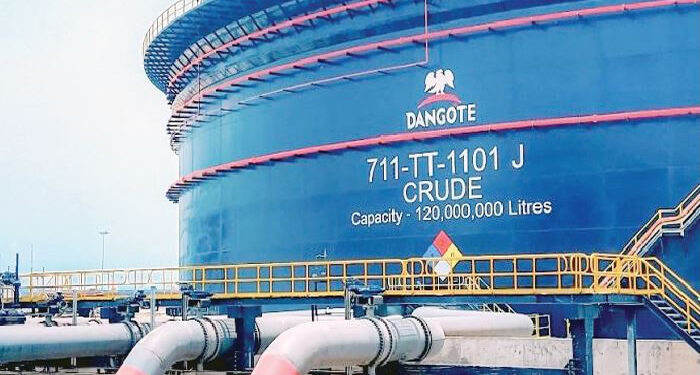The Dangote Petroleum Refinery has ramped up its daily production to 85% of its 650,000 barrels per day (bpd) capacity and is aiming to reach full capacity within the next 30 days, despite ongoing concerns about crude oil sourcing.
Vice President of Dangote Industries, Devakumar Edwin, told Reuters that the refinery is currently processing 552,500 bpd and expects to hit full production by March 2025. This timeline is ahead of the earlier projection of June 2025, signaling the refinery’s strong push to reduce fuel imports to Nigeria and Africa.
Crude Supply Uncertainty
Despite this progress, officials of the refinery have remained silent on the specific sources of crude oil supply, a major issue since the refinery’s launch. Although Nigeria’s oil producers are expected to provide up to 550,000 bpd between January and June 2025, the refinery has struggled to secure sufficient local crude, leading it to import from international markets.
In response, Nigeria’s Upstream Petroleum Regulatory Commission (NUPRC) has vowed to enforce domestic crude supply obligations, blocking export permits for producers who fail to supply local refineries.
Impact on Fuel Prices & Market Disruptions
With increased production, the refinery is expected to boost output of refined products such as diesel, jet fuel, and petrol. However, it remains uncertain whether this will translate to lower fuel prices at the loading stage.
Meanwhile, the refinery has already begun exporting products to international markets. Chairman Aliko Dangote recently announced that two cargoes of jet fuel were sent to Saudi Aramco, signaling the company’s expansion beyond Africa.
Despite its crude supply challenges, the Dangote refinery has disrupted European refiners by competing in the global fuel market. As it moves closer to full production, industry stakeholders will be watching closely to see how it secures crude and its impact on fuel prices in Nigeria and beyond.
























